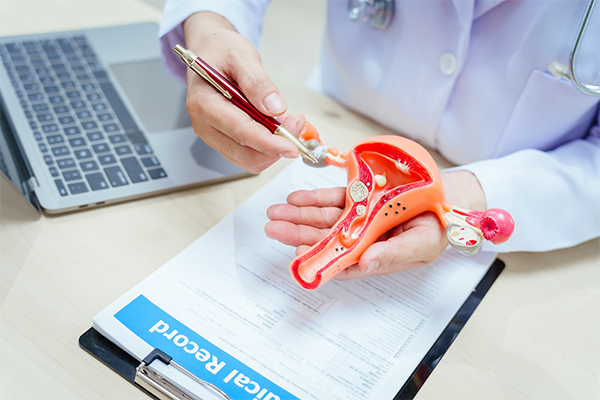
Vaginal yeast infections are a frequent concern for women, often bringing discomfort but rarely posing serious health risks. Caused by an overgrowth of yeast, this condition can affect women of all ages. Knowing what to look for, how to treat it, and ways to reduce the risk of recurrence can help you feel more in control of your health.
At Manipal Hospital Baner, we frequently support women dealing with this issue, offering medical guidance and long-term solutions.
Synopsis
What Is a Vaginal Yeast Infection?
A vaginal yeast infection, or vaginal candidiasis, occurs when there is an overproduction of Candida albicans, a type of yeast naturally present in the vaginal area. Under normal conditions, the body keeps it in balance. But when this balance is disturbed, the yeast can multiply and cause an infection.
Although usually mild, the symptoms can be frustrating. If left untreated, they may worsen or return frequently.

Common Vaginal Yeast Infection Symptoms
Recognising the signs early allows for quicker treatment and relief. The typical vaginal yeast infection symptoms include:
-
Persistent itching or irritation around the vaginal area
-
A thick, white discharge with a texture like cottage cheese (usually odourless)
-
Swelling or redness of the vulva
-
Discomfort or pain during intercourse
-
A stinging or burning sensation when urinating
These signs may also resemble other conditions, such as bacterial infections or sexually transmitted infections. For peace of mind and accurate diagnosis, it’s best to consult a doctor.
What Triggers a Vaginal Yeast Infection?
Several things can throw off the body’s natural yeast balance. Common contributors include:
-
Antibiotic Use - While antibiotics help fight infections, they also kill beneficial bacteria that control yeast levels, potentially allowing yeast to grow unchecked.
-
Hormonal Fluctuations - Changes in hormones during pregnancy, menstruation, or due to contraceptive pills can increase susceptibility.
-
Poorly Managed Diabetes - High sugar levels in the bloodstream and vaginal secretions can encourage yeast growth, especially in those with poorly controlled diabetes.
-
Weak Immune Response - Health conditions or medications that lower the immune system’s function can lead to more frequent infections.
-
Warm, Damp Conditions - Wearing tight clothing, synthetic underwear, or staying in damp garments for too long can create a moist environment perfect for yeast to flourish.
Our gynaecologists assess your individual circumstances to find the likely cause and tailor your care accordingly.
Effective Vaginal Yeast Infection Treatment
Treating a yeast infection depends on the severity and whether it’s a one-off or a recurring issue.
-
Over-the-Counter Treatments - Mild infections can often be cleared with antifungal creams, tablets, or pessaries available from pharmacies. Ingredients such as clotrimazole or miconazole are common and usually work within a few days.
-
Prescription Medicines - For more persistent infections, oral antifungal tablets like fluconazole may be prescribed. Some cases may require a longer treatment course or repeated doses over several weeks.
-
Chronic Infections - If yeast infections occur frequently, specialists might suggest long-term antifungal therapy or investigate underlying issues, such as hormone imbalances or diabetes.
During treatment, it’s advisable to avoid intercourse and irritating hygiene products to allow the area to heal fully.
Home Remedies for Vaginal Yeast Infection
Some natural remedies may provide relief alongside conventional treatment. While they’re not a substitute for professional care, these home remedies for vaginal yeast infection may ease symptoms:
-
Live Yoghurt or Probiotics - Introducing more “good” bacteria through probiotic foods like yoghurt or supplements can help restore the balance in your system.
-
Coconut Oil - This natural oil has antifungal properties and may help reduce itching when applied externally.
-
Warm Baths with Apple Cider Vinegar - Adding a small amount of apple cider vinegar to a bath (never directly to the vaginal area) may help improve pH levels.
-
Tea Tree Oil (Diluted) - Some women find relief with tea tree oil suppositories, but it should be heavily diluted and used cautiously, as it may irritate sensitive skin.
Always speak to a medical professional before starting any home remedy to ensure it's safe and appropriate for you.
Tips to Prevent Future Infections
While it’s not always possible to prevent yeast infections entirely, making small changes can reduce your risk:
-
Opt for breathable, cotton underwear
-
Avoid wearing tight-fitting trousers or synthetic fabrics for extended periods
-
Change out of damp clothes quickly after swimming or exercise
-
Steer clear of scented products around the genital area
-
Keep blood sugar levels in check if diabetic
-
Only use antibiotics when medically necessary
If you’re someone who experiences recurring infections, our experts can help you develop a prevention plan tailored to your needs.
When to See a Doctor
While some yeast infections can be treated at home, you should seek medical advice if:
-
It’s your first time experiencing these symptoms
-
You’re unsure if it's a yeast infection
-
You’re pregnant or have an underlying medical condition
-
Over-the-counter treatments haven’t worked
-
Infections keep coming back
Ignoring symptoms or guessing the cause can delay proper treatment. A consultation with a doctor at Manipal Hospital Baner ensures a thorough check and appropriate care.
FAQ's
Itching, thick white discharge, redness, burning when urinating, and discomfort during sex are common vaginal yeast infection symptoms. See a doctor at Manipal Hospital Baner for confirmation.
Mild cases respond to antifungal creams. Home remedies for vaginal yeast infection like yoghurt may help, but consult Manipal Hospital Baner if symptoms persist or worsen.
Not strictly, but yeast can transfer between partners. Avoid intimacy until treated. Seek advice at Manipal Hospital Baner if both partners experience symptoms.
Recurring infections may be linked to diabetes, hormones, or antibiotics. Visit Manipal Hospital Baner for personalised vaginal yeast infection treatment and prevention advice.
Most vaginal yeast infection treatments take 1–7 days. Oral tablets or antifungal creams offer quick relief. Chronic infections may require longer care.






















 6 Min Read
6 Min Read





















